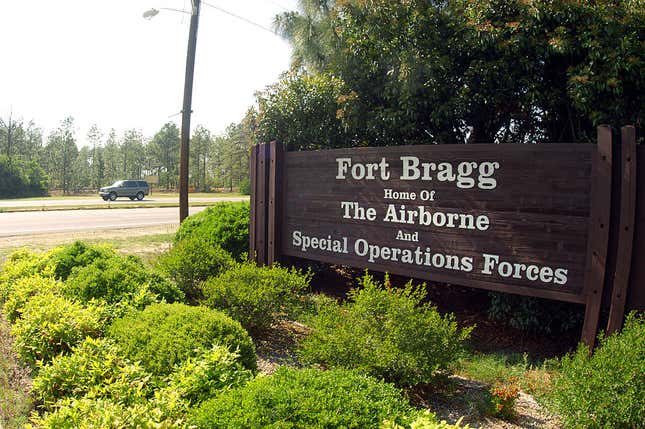
A 17-page report from The Naming Commission released to Congress on Monday outlines the $21 million estimated cost to rebrand the nine remaining U.S. army posts that honor Confederate soldiers, the Associated Press reports. This renaming effort initially began in 2020 as a military effort to atone for its racist history in the aftermath of the murder of George Floyd. Recommendations will not go into effect until Congress and Defense Secretary Lloyd Austin approve them.
The extensively detailed report recommends name changes ranging from water towers, street signs, hospital doors, and decals on 300 recycling bins at Fort Bragg in North Carolina, to the sign for a softball field at Fort Hood in Texas. The commission also broke down the total cost of the changes at each of the nine army posts: Fort Bragg, for example would cost $6.3 million; Fort Lee, Va. by contrast, would cost $2.4 million.
Fort Benning in Georgia, the commission noted, was named after a “lawyer, ardent secessionist, a bitter opponent of abolition and senior officer in the Confederate Army.” A $5 million price tag to rename the army post would include “removing Confederate names from paver stones on a walk to a memorial that honors U.S. Army Rangers.”
Fort Bragg, which was initially named after a “slave-owning plantation owner and senior Confederate Army officer,” according to the report, will change its name to Fort Liberty if the recommendations go through. It would be the only post not named after a person. The $6.3 million cost would include rebranding 45 police vehicles and 15 emergency services vehicles, such as fire engines and ambulances.
Braxton Bragg is “considered one of the worst generals of the Civil War; most of the battles he was involved in ended in defeat and resulted in tremendous losses for the Confederate Army; highly consequential to the ultimate defeat of the Confederacy,” the commission wrote.
Other bases up for revisions are Fort A.P. Hill, Fort Lee, and Fort Pickett in Virginia; Fort Gordon in Georgia, Fort Hood in Texas, and Fort Rucker in Alabama. A final report from the commission, set up by Congress in last year’s defense bill, is due to lawmakers by Oct. 1.

